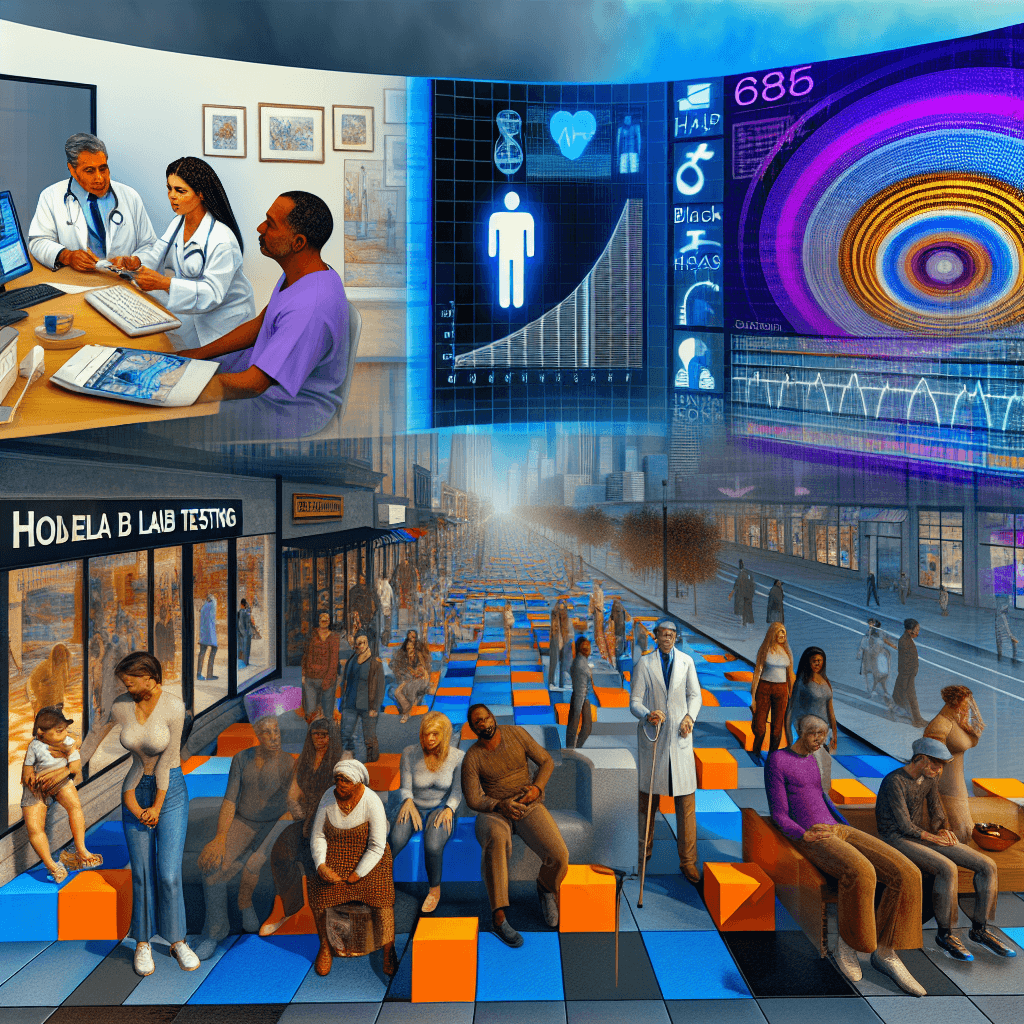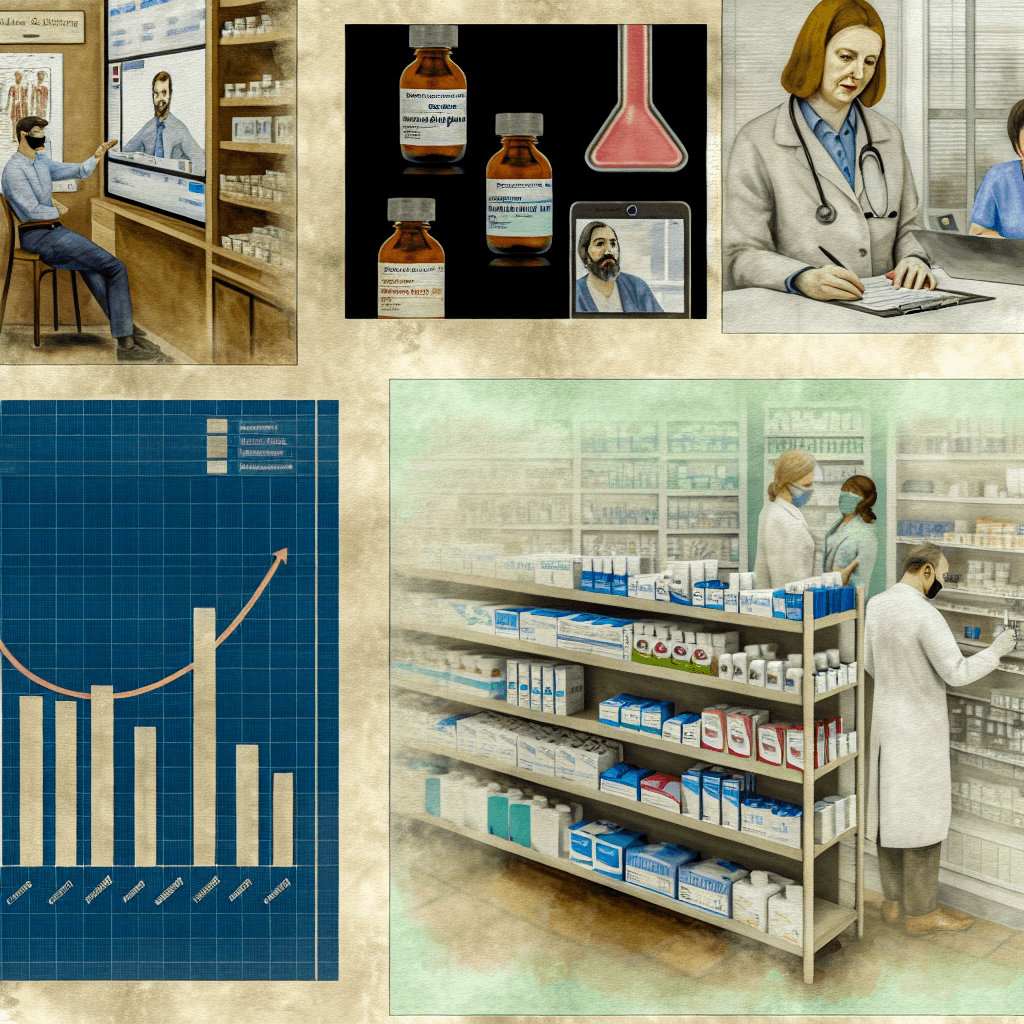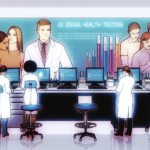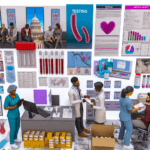Explore the U.S. telehealth and retail lab testing market trends, growth drivers, and key industry insights.
U.S. TELEHEALTH AND RETAIL LAB TESTING Market

Table of Contents
- Exploring the U.S. Telehealth and Retail Lab Testing Market
- The Rise of Telehealth in the U.S.
- Growth and Adoption
- Benefits of Telehealth
- Challenges
- Retail Lab Testing Market Overview
- Expansion and Consumer Trends
- Benefits of Retail Lab Testing
- Regulatory and Ethical Considerations
- Integration of Telehealth and Retail Lab Testing
- Case Studies and Examples
- Future Outlook
- Technological Innovations
- Policy and Regulation
- Conclusion
Exploring the U.S. Telehealth and Retail Lab Testing Market

The U.S. healthcare landscape is undergoing a significant transformation, driven by the rapid adoption of telehealth services and the expansion of retail lab testing. These sectors are not only reshaping how healthcare services are delivered but are also influencing patient behavior and regulatory frameworks. This article delves into the current state of the U.S. telehealth and retail lab testing market, exploring key trends, challenges, and opportunities that stakeholders face in this evolving landscape.
The Rise of Telehealth in the U.S.
Telehealth has witnessed a meteoric rise, particularly catalyzed by the COVID-19 pandemic. It involves the use of digital information and communication technologies, such as computers and mobile devices, to access healthcare services remotely and manage healthcare needs. This section explores the growth, benefits, and challenges associated with telehealth in the U.S.
Growth and Adoption
Statistics from various health agencies and market research firms highlight a dramatic increase in the adoption of telehealth services. According to a report by McKinsey, telehealth utilization has stabilized at levels 38 times higher than before the pandemic. This surge is attributed to more flexible regulatory measures, increased consumer willingness, and enhancements in technology.
Benefits of Telehealth
- Accessibility: Telehealth has made healthcare more accessible, especially for people in rural or underserved areas.
- Cost-Effectiveness: It reduces the need for physical office space and helps in managing staffing efficiently, which can lower healthcare costs.
- Chronic Disease Management: Telehealth provides tools for better chronic disease management by facilitating regular monitoring and patient compliance.
Challenges
Despite its benefits, telehealth faces several challenges. These include issues related to data security, privacy concerns, and the digital divide that affects equitable access to telehealth services. Moreover, there are concerns about the quality of care and the potential for reduced personal interaction between patients and healthcare providers.
Retail Lab Testing Market Overview
Retail lab testing allows consumers to have direct access to laboratory tests without necessarily visiting a doctor’s office. This segment of healthcare is growing as consumers seek more control over their health information.
Expansion and Consumer Trends
The retail lab testing market has expanded significantly with the entry of major pharmacies and dedicated lab testing companies into the marketplace. Companies like Quest Diagnostics and LabCorp, along with pharmacies like CVS and Walgreens, offer a variety of tests that can be accessed without a prior doctor’s prescription.
Benefits of Retail Lab Testing
- Empowerment: Consumers can monitor their health proactively, leading to earlier detection of potential health issues.
- Convenience: Tests can be taken at convenient locations and times without the need for a doctor’s appointment.
- Privacy: Some consumers prefer the privacy offered by retail lab testing over traditional medical settings.
Regulatory and Ethical Considerations
Retail lab testing is subject to various state and federal regulations, which can vary significantly. There is also an ongoing debate about the ethical implications of self-testing, including concerns about the interpretation of test results without professional guidance.
Integration of Telehealth and Retail Lab Testing
The integration of telehealth and retail lab testing is poised to further transform the healthcare landscape. This integration offers a more cohesive approach to patient care and streamlined health management.
Case Studies and Examples
Several healthcare providers are already integrating these services to enhance patient care. For instance, telehealth platforms are beginning to offer services where patients can be directed to nearby retail labs for testing, after which the results can be discussed virtually with a healthcare provider.
Future Outlook
The future of the U.S. telehealth and retail lab testing market looks promising but requires navigation through regulatory changes, technological advancements, and shifts in consumer behavior. Continued innovation and adaptation will be key to capitalizing on the opportunities presented by these growing sectors.
Technological Innovations
Emerging technologies such as AI and machine learning are set to play a significant role in both telehealth and retail lab testing by enhancing diagnostic accuracy and personalizing patient care.
Policy and Regulation
As these sectors mature, there will likely be more defined regulations that ensure the safety and efficacy of telehealth practices and retail lab testing services while protecting patient privacy.
Conclusion
The U.S. telehealth and retail lab testing markets are at a pivotal point in their evolution. The integration of these services is not only enhancing healthcare accessibility and convenience but also empowering consumers to take an active role in their health management. As these markets continue to grow and evolve, they offer significant opportunities for healthcare providers, technology developers, and policymakers to innovate and improve the overall quality of healthcare delivery.
In conclusion, while there are challenges to address in terms of regulation, technology, and ethical considerations, the potential benefits make the U.S. telehealth and retail lab testing markets integral to the future of healthcare.








